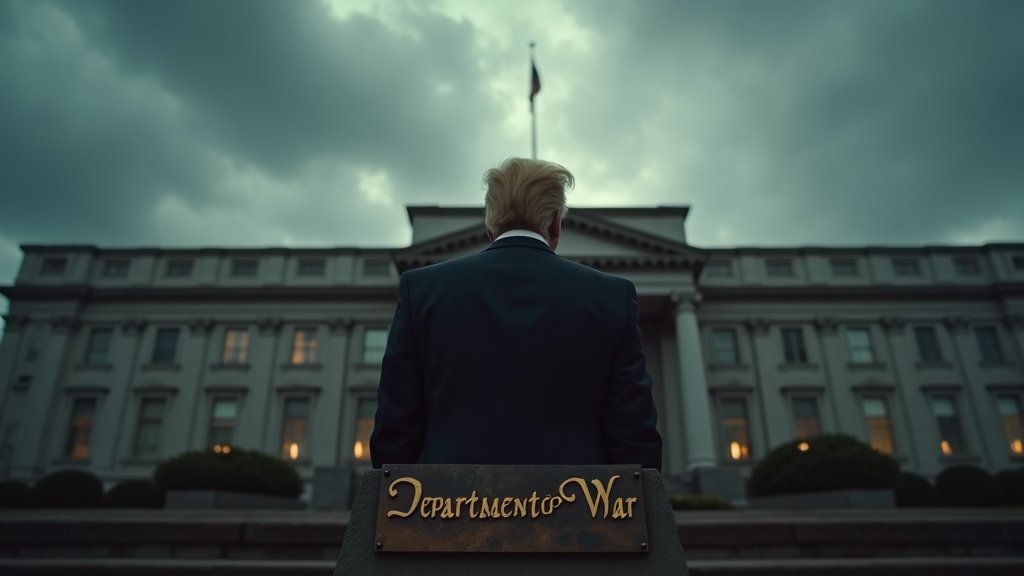Washington D.C. — On May 16, 2025, the landscape surrounding the Trump administration remained complex, marked by persistently low domestic approval, escalating geopolitical tensions, and scrutiny over foreign ties. A range of developments, from policy debates before federal courts to high-stakes international encounters and logistical curiosities, underscored the multifaceted pressures facing the President.
Domestic Policy and Political Standing
A new poll cited in Newsweek’s bulletin for May 16, 2025, painted a challenging picture for President Trump domestically. According to the findings, the President’s approval rating registered as negative on nearly all key policy issues. This widespread lack of public endorsement across the policy spectrum highlights significant hurdles for the administration’s agenda and political capital heading into the latter part of the year.
Simultaneously, a notable legal and policy issue surfaced concerning the status of lawful permanent residents. The Justice Department formally informed the Third Circuit Court of Appeals that U.S. Attorney General Pam Bondi possesses the inherent authority to reconsider and potentially revoke the lawful permanent residency of green card holders. This assertion by the Justice Department introduces uncertainty for millions of legal residents and signals a potentially significant shift in immigration enforcement powers, likely to face robust legal challenges.
Rising Geopolitical Flashpoints
Tensions between the United States and China continued to be a prominent global concern, particularly in the vital waterways of the Indo-Pacific. These tensions were sharply highlighted by a warning issued from Beijing to the Philippines, a long-standing U.S. defense treaty ally. The warning followed a recent naval encounter near a contested feature within the South China Sea, an area frequently the site of confrontational incidents between Chinese and regional vessels. The exchange underscores the fragile security environment in the region and the intricate balancing act required of Washington to support its allies while managing relations with a rising global power.
Further afield, China’s President Xi Jinping initiated a significant diplomatic and economic outreach towards Latin American and Caribbean nations this week. Through the China–LAC Community initiative, Beijing aims to expand trade, infrastructure investment, and political ties across a region traditionally viewed as falling within the United States’ sphere of influence. This strategic push represents China’s continued efforts to build global partnerships and reshape international alliances, presenting a clear challenge to long-standing U.S. influence in the Western Hemisphere.
Foreign Relations and Scrutiny Over Influence
A gift from Qatar to President Trump drew renewed criticism regarding potential foreign influence and compliance with legal norms surrounding gifts from foreign states. The gift in question is a Boeing 747-8 aircraft, which previously served the Qatari royal family and had reportedly remained unsold for years. The acceptance of such a valuable asset raised questions about the need for congressional approval, particularly given documented ties and business dealings between President Trump and at least six administration officials, including Chief of Staff Susie Wiles, FBI Director Kash Patel, Attorney General Pam Bondi, Special Envoy Steve Witkoff, and EPA Administrator Lee Zeldin, with Qatar. These ties include a new luxury golf resort deal currently being pursued by the Trump Organization in the Gulf nation, adding another layer of complexity to the scrutiny.
Amidst his Middle East tour, President Trump provided an update on a potential meeting with Russian President Vladimir Putin. Speaking in the United Arab Emirates (UAE), President Trump stated that a meeting would happen “as soon as we can set it up,” indicating ongoing efforts to arrange direct discussions with the Russian leader despite persistent friction on various international fronts.
Other Notable Developments
Beyond these major headlines, other news items featured in the May 16, 2025 bulletin included reports on the ongoing training activities of special forces in both North and South Korea, a reminder of the persistent military readiness required on the divided peninsula. Domestically, plans were noted for a nationwide Walmart boycott scheduled for the following week, reflecting specific consumer or labor-related grievances targeting the retail giant.
Adding a unique element to the President’s recent travel, details emerged about the use of Tesla Cybertrucks, specifically outfitted for police usage, as part of President Trump’s escort detail in Qatar on May 14.
Collectively, the events highlighted on May 16, 2025, underscore a period of significant challenge and dynamic activity for the Trump administration, navigating complex domestic approval ratings, assertive geopolitical rivals, intricate foreign relations subject to heightened scrutiny, and a range of diverse, unfolding events.












